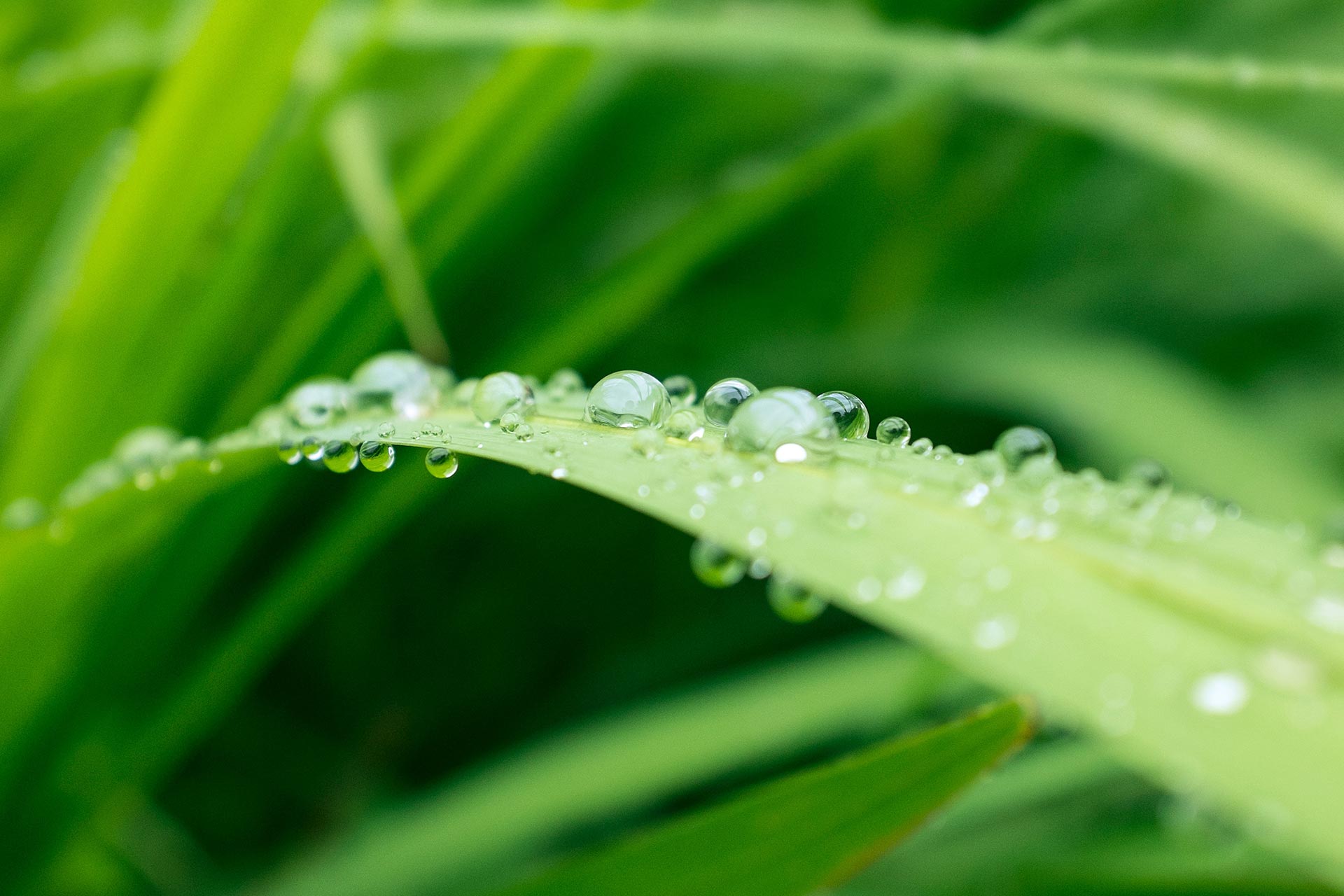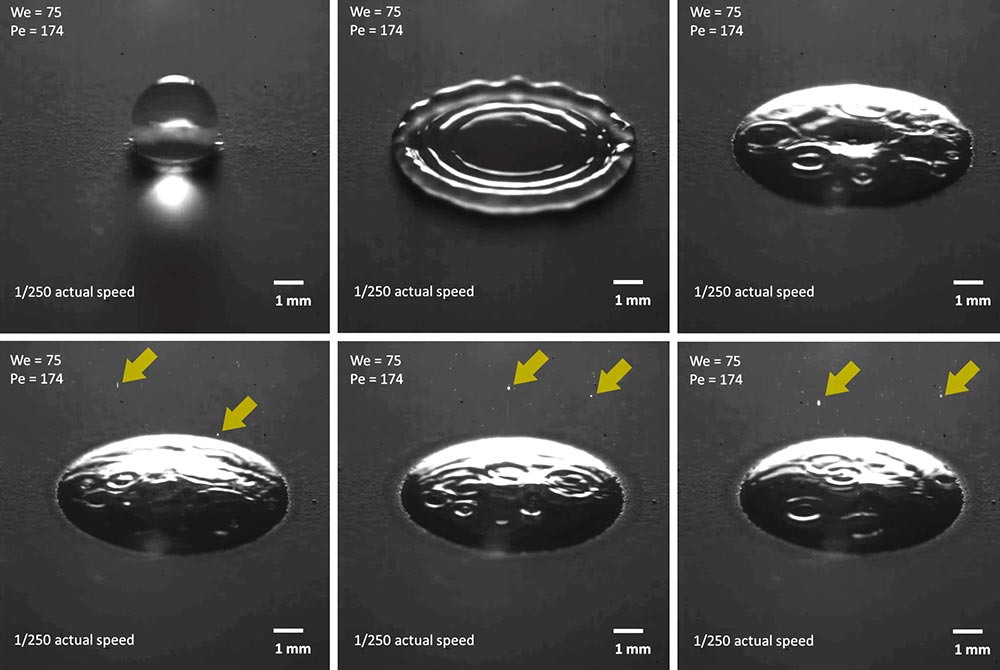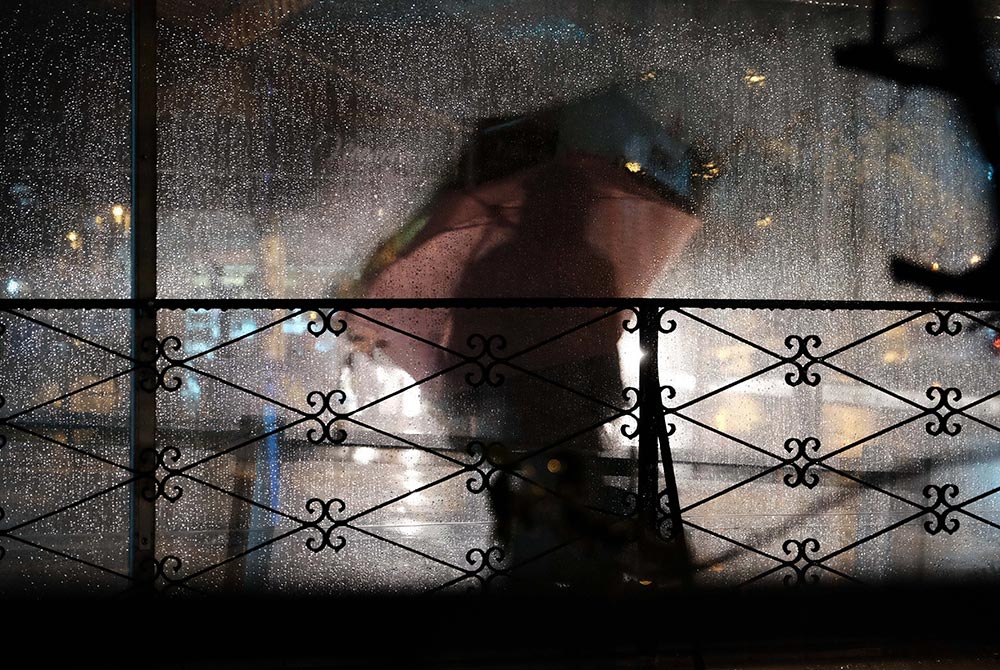Where does the perfume of rain come from?
There hasn’t been a single day without rain in May. It’s an opportunity to ask delightfully pointless questions about the smell of showers. Researchers at MIT have solved the problem: they have discovered that raindrops falling on porous ground release aerosols that carry aromatic substances from the soil. This phenomenon goes by the mysterious name of petrichor. – Isabelle Cerboneschi.
Since the climate seems to have gone haywire, sayings no longer make much sense, particularly this one: « May, the month of sunshine, blooming flowers, and endless possibilities. » It may have been true before 2024, but this year, the saying is highly overrated. There hasn’t been a single day without rain in May. So why not take this opportunity to ask a few unnecessary questions, including what rain smells like?
In 2021, a new word entered the French dictionary Petit Robert: petrichor. But what is petrichor? To find out, you either have to open the dictionary or go back in time to exactly 2015.
Scientists at the Massachusset Institute of Technology (MIT) had noted, like all tarmac walkers, autumn forest strollers and readers of rainy days, the smell of earth that hung in the air after the rain.
They could have stuck to this simple observation, which can sometimes generate poems, or they could have done their homework and tried to understand where this scent came from. In 2015, they embarked on a study. They filmed the rain with high-speed cameras, and after 600 experiments on 28 types of surface, they discovered that when a drop fell on a porous floor, the air in the pores formed small bubbles that rose to the surface and released aerosols. A bit like the bubbles that try to escape from a glass of champagne, before bursting and releasing a multitude of suspended particles into the air.
The scientists noted that the aerosols generated by the rain carried with them the aromatic elements contained in the soil, as well as bacteria and viruses, and that all this was propagated by the wind and the breeze. ‘Rain falls every day, it’s now raining somewhere in the world, it’s a common phenomenon, yet strangely, no one has observed this mechanism before’, noted Cullen R. Buie, one of the researchers and an assistant professor of mechanical engineering at MIT. ‘Now that we have identified the fact that aerosols can be generated by raindrops falling on the ground, this will help us to understand how microbes spread in the environment and are transmitted to humans’, added Youngsoo Joung, a postdoctoral researcher in Cullen R. Buie’s laboratory.
But apart from microbes, what about the scent of rain, you ask? All these experiments have shown that the lighter the rain, the more aerosols are released. This would explain why the slightly earthy scent that floats in the air after a shower is more common after light rain than after heavy showers.
Thanks to this study, I discovered that the scent of rain bore the mysterious name of petrichor, from the Greek petra, the stone, and ichor, the blood of the gods. Petrichor literally means ‘the divine blood of stones’. And this month of May 2024 seemed much more precious to me.
















